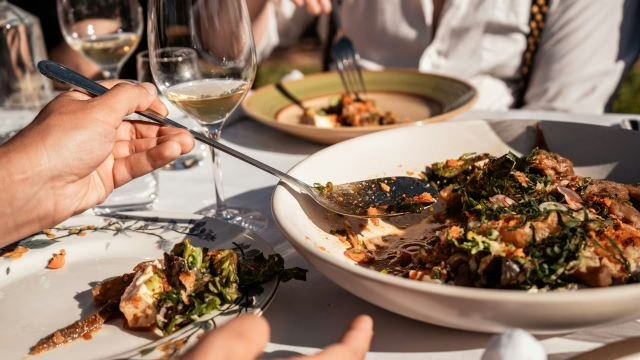By Tamar Levi ~
Down in Israel’s stunning valleys and emerald hilltops, a revolution is bubbling under. Away from the chaos of city bazaars and street stalls hawking street food, there is a movement transforming quietly the way food is being produced, harvested, and consumed in Israel. Israel’s farm-to-fork revolution is less about crunchy vegetables and fruits—about one of sustainability, innovation, and sheer respect for the land that nourishes it.
Encouraging Freshness in Every Bite
Israeli foodies and chefs have embraced a clean but efficient credo: it tastes wonderful when food is local, fresh, and sustainably grown. It’s fueling farm-to-table restaurant culture and expressing gratitude to CSAs that enable farmers’ direct-to-consumer sales. From the Jezreel Valley’s rich soil to Mediterranean greenhouses along the seacoast, fresh fruits and vegetables travel rapidly from farm to table, its final flavor and nutritional integrity preserved.
At artist colony and farm-to-table-owned Meshek Barzilay, co-owner and chef Ori Barzilay explains, “When you’re working with local farmers and you’re harvesting veggies hours before they’re served in the kitchen, it makes all the difference—the flavor, the texture, the whole eating experience.” This proximity between grower and chef is at the center of Israel’s food innovation.
Sustainability Rooted in Tradition and Technology
Israel is highly committed to sustainable farming, considering that Israel has a desert climate and natural waterheds. Thirty years of research and sophisticated technology have created methods for water conservations in agriculture, soil conservation, and control of pollution by the environment.
Drip irrigation is an old-timer, studied in the beginning in Israel and now used everywhere worldwide. The system drips a predetermined amount of water over plant roots, saving wastage and enhancing yield. Drip irrigation has turned deserts into green farms, states The Israeli Ministry of Agriculture and Rural Development.
In addition to water saving, other Israeli farmers also apply some advanced approaches like vertical farming, organic farming, and integrated pest management in order to support green production. Kibbutz Lotan is a farm organization that functions as an environmental agriculture experiment station, where old desert wisdom converges with new high tech science.
The Fresh Ingredient Movement Inspires Menums
Farm-to-table philosophy is transforming the menus in Israel. Even celebrity chefs now create menus with spotlight items on seasonal greens and heirloom greens, reveling in the loveliness of locally grown fruits and vegetables.
Fish is presented at Uri Buri in Acre with indigenous field greens and herbs in attempting to construct sea-and-land worshipping plates. Restaurants Shila and Claro in Tel Aviv are renowned for presenting first-harvested greens, red-ripe tomatoes, and wild herbs hand-picked from the field.
This devotion to freshness is extended to street food and to anything. Street vendors offering from sabich sandwiches to sabra salads are authenticity aficionados, so fast food is farm-based, too.
Community and Connection
Israeli farm-to-table culture is both social and food-based. Tel Aviv’s HaTachana and Jerusalem’s Mahane Yehuda are two of the ones that encapsulate the immediacy of the relationship between the consumers and producers and assist in creating open, trusting communities.
Such programs as Tnuva’s CSA program are helping families purchase a crate of locally harvested fresh fruit and vegetables weekly from the farmers themselves, spreading small-scale farming and awareness amongst consumers to consume seasonally. It has assisted in triggering and preserving rural economies, The Jerusalem Post explains.
A Model for the Future
Israel’s farm-to-table revolution is the ideal template for the rest of us to emulate in terms of how innovation married heritage and merged with sustainability to feed one and the world as well.
From the rich soil covering the nation to restaurant tables in city centers where consumers dine off their own farms, the revolution has a deep respect for the intimate waltz of ground and plate—feeding body and spirit.


